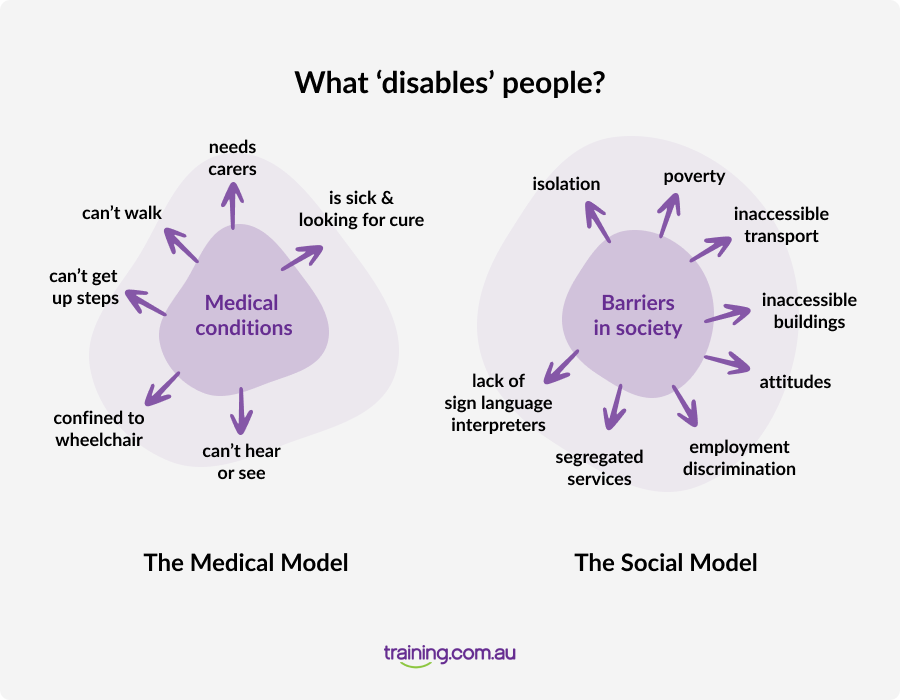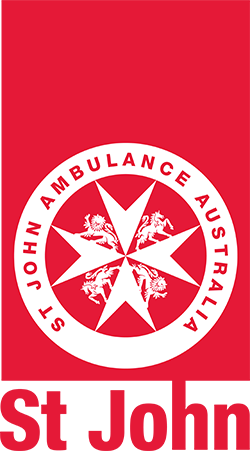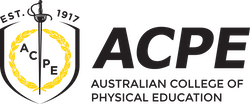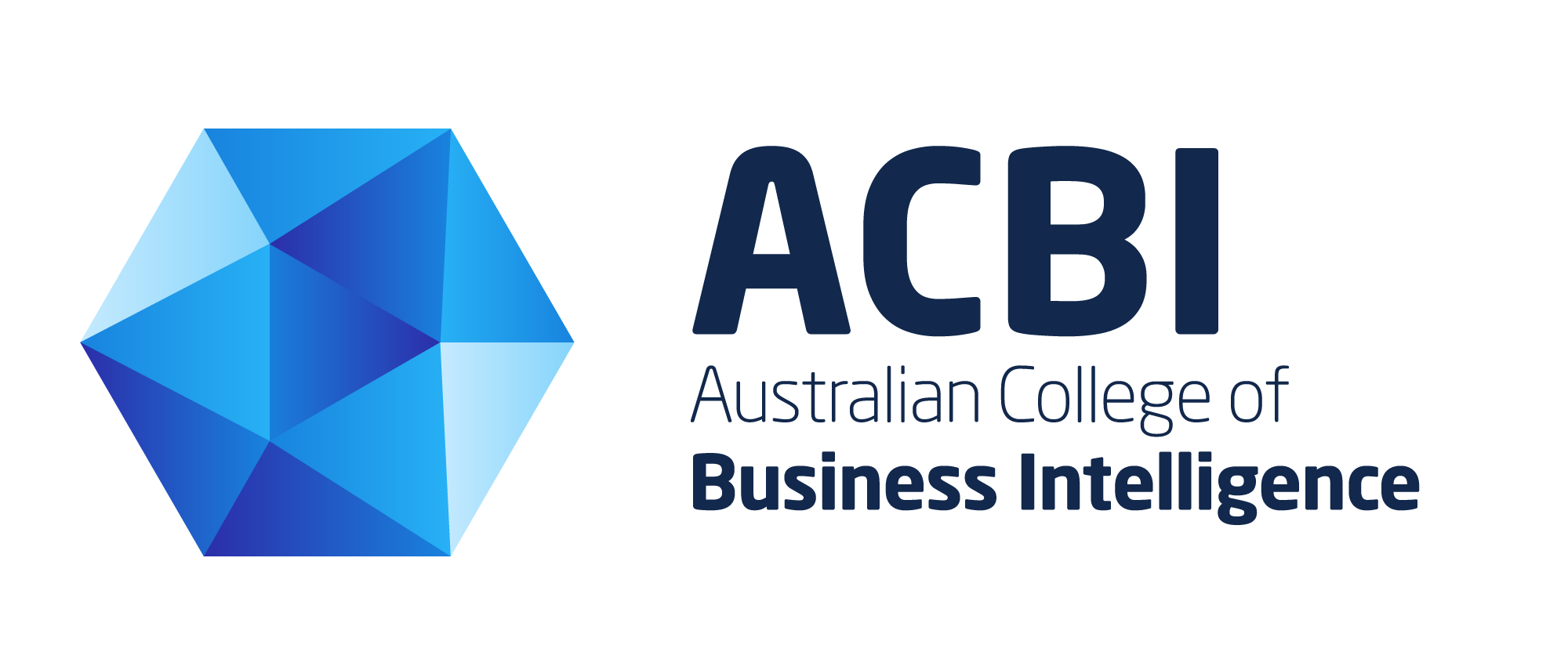In this post
- 1. There’s a difference between disability, learning difficulties and ‘special needs’
- 2. It’s important and incredibly rewarding work
- 3. How you interact has a big impact
- 4. Your career possibilities are wide-ranging
- 5. You have options in courses for special and inclusive education
- Are you up for the challenge?
- Browse Results
5 Things to Know Before Working with Kids with Disabilities & Learning Difficulties

In this post Show
- 1. There’s a difference between disability, learning difficulties and ‘special needs’
- 2. It’s important and incredibly rewarding work
- 3. How you interact has a big impact
- 4. Your career possibilities are wide-ranging
- 5. You have options in courses for special and inclusive education
- Are you up for the challenge?
- Browse Results
When you work with kids with disability or learning difficulties, you can make a huge difference — not only in a child’s life but to their families and the wider community too.
Are you passionate about giving every child the opportunity to flourish? Then you’ll find many career possibilities open to you in education and disability support.
Here are five things you need to know before you start working with children with disability and learning difficulties.
1. There’s a difference between disability, learning difficulties and ‘special needs’
Because language impacts people’s lives — and whether they feel respected and included — it’s vital to get it right. On the other hand, when people use the wrong words, it can create more confusion and problems. Here’s a quick primer on some of the basics.
What is disability?
For more than 40 years, disability advocacy has used the social model of disability. The social model rejects the medical model, which sees disability as a health condition to be fixed and treated.
The social model says the problem is not with the person’s impairment or with their bodies. Instead, the problem lies in whether society is accessible. So, we should change society to accommodate people living with impairments.

Since, then are now two ways to define disability in Australia:
The social definition of disability
“Persons with disabilities include those who have long-term physical, mental, intellectual, or sensory impairments, which in interaction with various barriers may hinder their full and effective participation in society on an equal basis with others.”
—United Nations Convention on the Rights of Persons with Disabilities
The UN definition goes one step further than the social model. It recognises that dignity is a basic human right — and that once barriers are removed, more support may be needed to achieve that dignity on the same level as everyone else.
The national legal definition of disability
The Disability Discrimination Act (DDA) provides a broad definition, including eight types of disabilities:
- Physical disability: Impacts mobility or dexterity
- Intellectual disability: Impacts ability to learn or process information
- Mental illness: Impacts thinking processes
- Sensory disability: Impacts the ability to hear or see
- Neurological disability: Impacts the brain and central nervous system
- Learning disability: Impacts acquisition, organisation, retention, and understanding of information
- Physical disfigurement: Impacts physical appearance
- Immunological disability: Impact due to the presence of organisms causing disease in the body
People can be born with a disability or acquire one through an accident, disease, or genetics. Disabilities can range from being permanent to temporary as well as visible to invisible.
7.6%
of children aged 0–14 years have disability
Source: Australian Institute of Health and Welfare
Learning difficulties vs learning disabilities
If you’re working in education or support work, you’ll undoubtedly hear the terms ‘learning difficulties’ and ‘learning disabilities’. You might also hear people saying ‘special needs’, ‘special education’ and ‘inclusive education’ and wonder, are these things different? And if so, how?
Here’s what each means, and how they’re different:
Learning difficulties | Learning disabilities |
|---|---|
Means the child has trouble learning academic skills | Based on a medical diagnosis |
Affects 10-16% of the population | Affects 2-4% of the population |
Can be caused by physical, emotional or environmental factors | Lifelong condition with neurological causes |
Can be improved with educational interventions | Cannot be improved with intervention. |
Not legally recognised as disabilities under the Disability Discrimination Act and state disability laws. | Legally recognised as disabilities under the Disability Discrimination Act and state disability laws. |
Source: ADCET
What does ‘special needs’ mean?
‘Special needs’ is a euphemism, and disability advocates advise against using it to describe someone with an intellectual, psychosocial, or cognitive disability.
People With Disability Australia describes it as ‘ableist’ and ‘condescending’, saying ‘people with disability have rights not needs.’
Source: PWD Language Guide
2. It’s important and incredibly rewarding work
Deirdre Brandner is a psychologist who diagnoses and supports children and their families who face learning and emotional challenges. She’s also a former teacher and is passionate about giving each child the opportunity to flourish.

“I started my career as a primary school teacher. The children in my classroom had diagnosed and undiagnosed issues. I didn’t feel that I had an adequate understanding of how best to support these delightful children.
Every child should be able to be given the opportunity to achieve. By returning to study and becoming an educational and developmental psychologist, I now have the privilege to work with these children and their families.
The inability to take on new clients is challenging. I want to be able to help more families, but there are only so many hours in the day.
To meet this challenge, I try to provide support through social media, presentations and webinars so more families can have the resources they need.
You need to have a sense of humour, and you must love kids! Know that there is no magic wand, but you can help make small changes that can have very positive results.”
“Helping the family is as important as working with the individual child. Every child has the ability to bring joy, and it is a privilege to work with this special group.”
3. How you interact has a big impact
Whatever your role, how you treat people experiencing difficulties or disabilities matters.
It certainly matters to the child and their family. It also matters on a bigger scale. Seemingly small actions can cause a ripple effect. Together they combine to form culture, including how society views and relates to people with disability.
Here is a list of 5 tips to follow when helping children with learning difficulties or disability.
Identify
When you’re introduced to a child with learning difficulties or disability for the first time, find out what may impair them. Are they neuroatypical? Do they have a physical impairment? Do they have less developed social skills? Are they non-verbal? It can be challenging to identify the impairment, particularly in young children. This information will help you first interact with the child and understand why they may (or may not) react in specific ways.
Consistently interact
Don’t be intimated or hesitant to interact! Sometimes it takes a few tries and methods to find the right one that appropriately engages the child, but you must persist. Remember to introduce yourself, try and make eye contact as much as possible and explain the activity clearly.
Observe
Notice what works and what may not when it comes to each child. What elicits a reaction? Is it positive or negative? What form of stimulus captures their attention? Aural, physical or visual?
Be patient
Sometimes it’s frustrating, and often it can feel as if any progression you do make is very quickly lost. Don’t be disheartened by this! Developmental delays are common. Continue with the methods you’ve found to work, communicate with the parents if possible and, most importantly, allow the child to build their trust in you.
Communicate
Open communication is essential, whether it’s talking to the child themselves, their parents, or other authority figures in the child’s life. Especially if the child is non-verbal or has a behavioural or learning disability, it can be challenging to receive any feedback from them. Try and speak to the individual child’s parents or teachers to gauge some form of feedback and share any headway you may have made.
4. Your career possibilities are wide-ranging
Are you passionate about helping children reach their full potential? Many career opportunities await you in the education and disability support sectors.
While the entry-level roles may be easy enough to get into, they are still enormously personally rewarding and give you the chance to make a difference in kids’ lives every day.
And perhaps you’re interested in progressing to a higher level. In that case, your previous experience can help you enter into studying at university — leading to high-impact, fulfilling roles in teaching and psychology.
Teachers' aide
Average salary: $54,269 (source)
Help create a warm, supportive learning environment and help the teacher run classroom activities smoothly. As a teacher’s aide, you also work closely with individual children, helping them develop social and emotional skills. If you want to work with children with disability, you need at least a Cert IV in Education Support.
Child disability support worker
Average salary $64,248 (source)
Disability support workers work with people of all ages, backgrounds and disabilities — and if you wish, you can specialise in supporting kids and young people with disability. Although you don’t need formal qualifications for this role, it’s not without challenges. A Cert III in Individual Support or a qualification in education support can give you the skills and experience to do a great job.
Special and inclusive education teacher
Average salary: $92,136 (source)
Special or inclusive education teachers are always in high demand. You need to be a qualified teacher with a Bachelor of Education and extra training to work in this role. Your work will include teaching students directly and supporting other teachers to create an inclusive learning environment.
Child psychologist
Average salary: $103,864 (source)
As a child psychologist, you can choose to specialise in helping children with learning difficulties, disabilities, or both. This is a highly-skilled role that requires years of university study. With that comes the chance to use your skills to make a meaningful impact.
5. You have options in courses for special and inclusive education
If you can see this as a full-time career but are unsure where to start, an education course is a great option. You can take numerous pathways depending on time constraints or prior education qualifications.
Many of these courses are now offered online, meaning more time for yourself and your busy life. However, bear in mind that if you choose an online provider, you may need to source your own work experience. Of course, both in-class and blended options are available too.
Certificate III in Education Support
A Certificate III in Education Support is a great way to start your education career. It allows you to enter the field as a teacher’s aide or education assistant. Be aware, however, that this while qualification enables you to become a teachers’ aide, you cannot work with children with disability or learning difficulties until you also gain the Cert IV.
Certificate IV in Education Support
This course covers very similar content to the Cert III, but also focuses on supporting students with learning difficulties or disability. Once you’re qualified, you can then go on to work in schools, kindergartens, and pre-primary education settings as a teacher’s aide or education assistant supporting kids with a range of learning needs.
You can then choose to progress into an undergraduate degree with inclusive education teaching aspects included in the curriculum.
Bachelor of Education
If you’d like to become a fully qualified special education teacher, you will need to complete a Bachelor of Education (majoring in special education) at university, usually a four-year degree. You can then specialise further by progressing into postgraduate study of Special Education.
Are you up for the challenge?
For passionate, caring, and dedicated people, working with kids with disability or learning difficulties can be one of the most rewarding careers out there.
Every day, you can go home from work knowing you’re making a real difference in people’s lives. And you can see the positive changes first-hand.
Start today with an education course. Or, if you’re looking to change directions in your current job, a course in disability or child care could be the right choice for you.
Browse Results
Bachelor of Cyber Security CRS1401441
The Bachelor of Cyber Security offered by AIBI Higher Education is a technical course designed to prepare students for entry-level roles leading to an exciting career in Cyber Security. Students will first learn the foundations of information technolog...
Certificate III in Non-Emergency Patient Transport (VIC Only) HLT31120
Our Promise We are confident in the delivery of our training. On successful completion of the course, graduates will be guaranteed a telephone interview for vacant Patient Transport Officer positions in the Non-Emergency Patient Transport division. So...
Diploma of Health Science
Contribute to a healthier and happier society with Endeavour’s Diploma of Health Science. In addition to gaining foundational knowledge of biological and social sciences, our one-year full time (two years part-time) course gives you the opportunity to...
Certificate IV in School Based Education Support (Class Based and Self-Paced) CHC40221
The qualification CHC40221 – Certificate IV in School Based Education Support is referred to in industry as the Cert 4 Education Support or your teacher’s aide course. Education support workers assist teachers and support student learning in a range of...
Certificate III in Early Childhood Education and Care (Melbourne Only) CHC30121
Are you patient, flexible and wanting to help nurture our future generation? Our CHC30121 Certificate III in Early Childhood Education and Care is a course designed for entry-level into the early childhood education and care industry. As a childcare wo...
Diploma of Early Childhood Education and Care (Melbourne Only) CHC50121
Are you passionate about offering children the best opportunities for their individual development? Our CHC50121 – Diploma in Early Childhood Education and Care course is designed to train students in all aspects of childcare, from providing for care t...
Certificate IV in School Based Education (Perth Only) CHC40221
Enhance your job prospects, by completing the CHC40221 Certificate IV in School Based Education Support, where you will be qualified to work with children with additional needs. This course Is designed for individuals who are either currently working o...
Certificate III in Information Technology ICT30120
With a ICT30120 Certificate III in Information Technology from MCI Institute you will hold a nationally recognised qualification that is highly relevant to a wide range of industries and valued by your potential employers. A growing reliance on technol...
Certified Cybersecurity Professional
Our Certified Cybersecurity Professional course will prepare you for a career in an industry with 0% unemployment. This interactive online course will take you from zero industry experience to a job ready, front line Cybersecurity Analyst in less than...
Diploma of Counselling CHC51015
The CHC51015 Diploma of Counselling will teach you a range of therapy techniques that you can use to get the best result for your clients. It will also give you the skills necessary to communicate effectively, work within a case management framework, a...
Certificate III in Community Pharmacy (Perth Only) SIR30116
The Certificate III in Community Pharmacy prepares you for a rewarding career as a pharmacy assistant in a retail pharmacy setting. This course equips you with the skills to provide excellent customer service, assist with pharmacy products, and support...
Certificate IV in Business (Finance) BSB40120
Our nationally accredited BSB40120 Certificate IV in Business (Finance) is designed to provide you with the skills to manage and oversee the financial operations of a business. You’ll learn accounting practices, budget planning and analysis, and financ...
Diploma of Nursing (SA and WA Only) HLT54121
Build a meaningful career that makes a difference with the HLT54121 Diploma of Nursing. This nationally recognised qualification provides the essential skills, knowledge, and practical training needed to become a qualified Enrolled Nurse in Australia....
Graduate Certificate in Leadership in Sport
The Graduate Certificate in Leadership in Sport (GCLIS) provides students with the opportunity to target employment opportunities within upper management in the sport industry. Target roles include positions at the General Manager, Director or Executiv...
Pilates Matwork Instructor Course
Standout in the fitness and wellness industry with an accredited Mat Pilates Qualification! This course is a great opportunity to add a new skill set to your existing career or bundle with fitness certifications to establish yourself as a diverse, mult...
Climate Reporting Fundamentals
Discover the world of climate and sustainability reporting with this comprehensive short course and micro-credential. This training course will increase your understanding of climate reporting requirements and how these will affect your business by exa...
Upskill in climate and sustainab...
UX UI Design: Transform
Every time you use a digital product, your experience of it and the impression it leaves is the result of “good” or “poor” UX UI Design. Knowing that one in three consumers will walk away from a brand they love after just one bad experience, it’s clear...
Software Engineering: Transform
Academy Xi has leveraged curriculum from New York based tech education provider, Flatiron School, to bring you the Software Engineering: Transform course. With curriculum built by Flatiron School, the Software Engineering: Transform course from Academy...
Data Analytics: Transform
The demand for data analytics skills has risen sharply, with LinkedIn reporting a massive 650% surge in Data Analytics and Data Science roles since 2012. This upward trend is expected to continue, with the number of roles in Australia set to grow a fur...
Product Management: Transform
This course is perfect for anyone wanting to start a highly sought-after career in Product Management.
Built by industry professionals, this course is designed to immerse you in the real-world challenges Product Managers face everyday.
Online courses also available
Latest Articles
Agriculture Careers: What You Should Know in 2025
As one of Australia's most important industries, the agriculture industry offers great career opport...
Are Digital Skills the Key to Job Security in 2025?
The digital revolution is here, and it doesn’t care if you have a technical job or not — it’s coming...
How to Become a Chef in Australia: Complete Guide for 2025
The complete guide to becoming a chef in Australia. Learn how to get your start and make it in the h...
Want to read more?
9 Career Change Ideas: Start a New Career in Your 40s, 50s and 60s
Don’t know what to do with your life? Read these nine career ideas for older adults looking to reinv...
Hospitality Cover Letter Example
Discover the key points to include in any hospitality cover letter. Use this sample hospitality cove...
Let Your Innate Empathy Grow in These 10 Jobs That Help People
Jobs that help people require professionals who are compassionate, kind and empathetic. If you posse...













